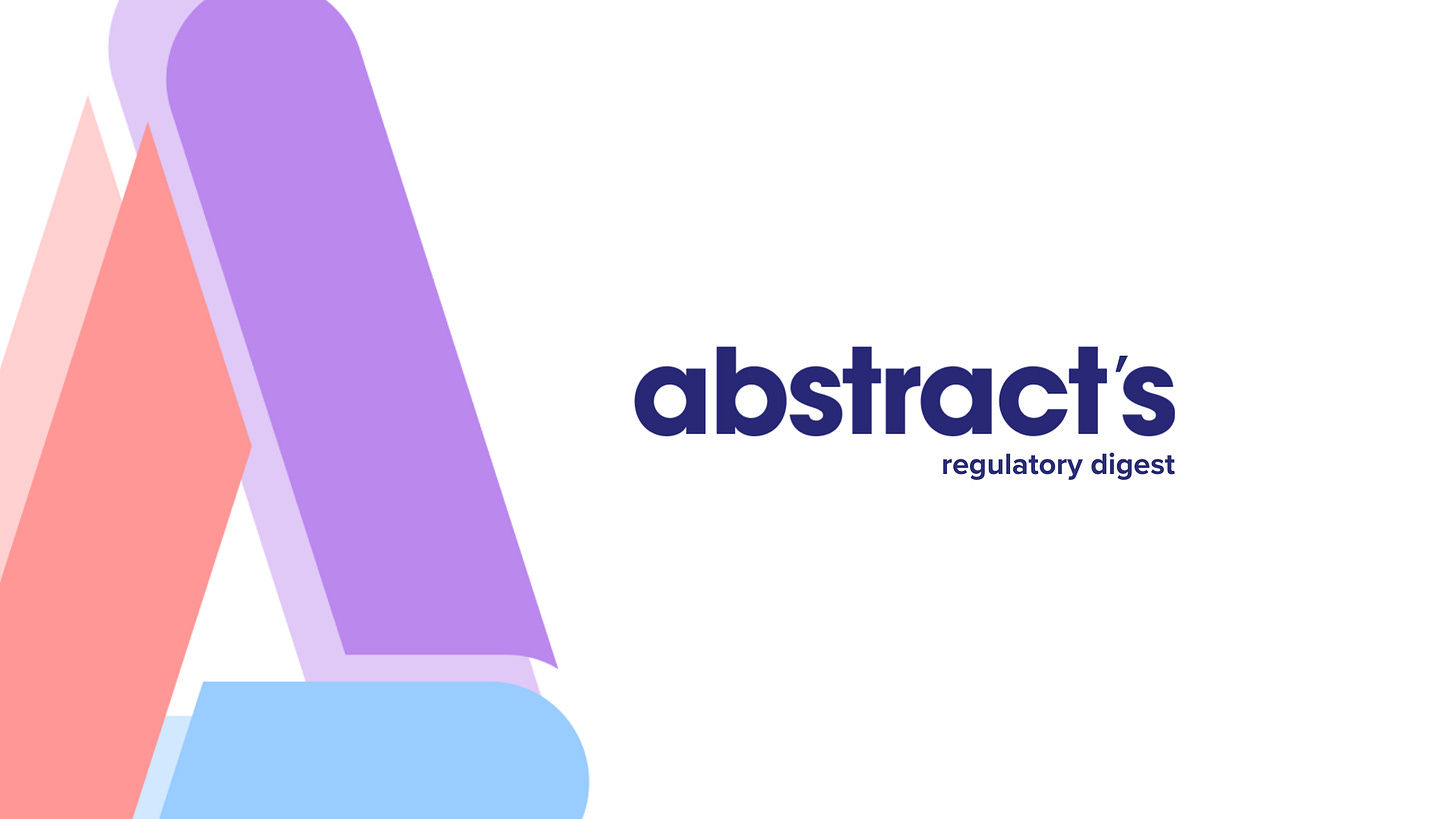The Data Privacy Shakeup: What Product, HR, Ops & Finance Leaders at Tech Companies Need to Know
Abstract's Regulatory Digest, No. 3 - April 3, 2025
Data privacy regulation is no longer something that only legal or compliance teams need to worry about.
Over the last two weeks, a tidal wave of policy changes at the state and federal levels has emerged—each with serious implications for enterprise software, consumer SaaS, and AI infrastructure companies. These updates hit at the core of how tech companies build, operate, and scale their products—and will soon be too expensive to ignore.
What Changed: A Snapshot of March 2025
🏛️ State-Level Shifts
Kentucky passed HB 473, strengthening consumer data rights (WilmerHale).
Texas introduced HB 5495, mandating companies respect browser-based Global Privacy Controls (WilmerHale).
Maine and Vermont advanced kids’ data protection and broad consumer privacy protections (GlobalPolicyWatch).
US Federal Moves
The Genomic Data Protection Act was introduced in the Senate, aiming to regulate sensitive genetic data (AccessPartnership).
New federal guidance is pushing for AI explainability, data minimization, and automated decision-making transparency (SecurePrivacy).
💸 Financial Data Regulations
Stronger consent management rules are on the rise—each data use case now requires separate, explicit permission.
“Dark patterns” that trick users into sharing data? Now banned.
GDPR fines for violations: up to 6% of global revenue (SecurePrivacy).
🔥 California Sets the Tone
The California Privacy Protection Agency (CPPA) fined Honda $632,500 for “dark pattern” cookie banners and unclear opt-outs (Jenner & Block).
CPPA also launched a location-data sweep—targeting companies that don’t properly let users opt out of sharing geolocation information.
🧬 New York Cracks Down
New York shortened data breach reporting timelines to 30 days.
Health data now falls under breach disclosure requirements—even for tech companies running wellness apps or internal HR tools (Eye on Privacy).
👁️ Who This Hits: Departmental Breakdown
Product Teams
Must design consent flows that honor Global Privacy Controls (GPC).
Cookie banners now require symmetry (“Reject All” = “Accept All”).
Products using AI? Add transparency mechanisms that let users contest decisions.
HR & Labor
Employee social media and location privacy now in scope.
Companies must train employees on how to handle privacy requests—and may face fines if they fail.
Ops & Compliance
Need to update contracts to restrict downstream sharing of sensitive data.
Must revise breach playbooks to hit new timelines and regulatory bodies.
Finance & Tax
Budgets must now account for multi-jurisdictional compliance architecture.
Fines for GDPR-like violations could reach 6% of revenue.
Expect more spending on legal review, training, audit trails, and risk management.
⚖️ Compliance Isn't Optional
Key new requirements include:
✅ Consent must be explicit and granular—no more bundling or burying opt-outs.
⚙️ AI systems must explain how they work and why a decision was made.
🧼 Data minimization is now the default: collect only what you absolutely need.
👶 Children’s privacy requires stronger age gating, parental consent, and usage restrictions.
🏛️ Who’s Making These Rules?
State legislators: Texas, Kentucky, Vermont, Maine, California, New York—moving fast with new bills and enforcement.
Regulators: CPPA (CA), FTC (federal), NY Department of Financial Services (DFS).
Private stakeholders: Privacy advocates, technical standards organizations, and lobbying firms.
💡 What To Do Now
Run a privacy compliance gap audit.
Build GPC recognition into your web products.
Review vendor contracts and data-sharing terms.
Document your AI decision processes.
Update employee training and breach response timelines.
Abstract's POV
At Abstract, we believe compliance shouldn't slow you down—it should help you see around corners. Our AI regulatory platform proactively monitors jurisdictional changes across 140,000+ sources, so your legal and product teams can stay weeks ahead of enforcement.
The future belongs to those who act early. Let’s make sure you’re one of them.
Explore how Abstract can help your org anticipate regulatory risk before it becomes a headline.
→ Learn more




